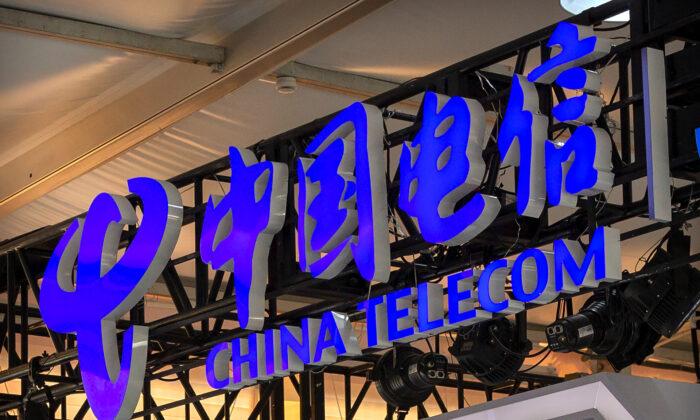China Telecom said it plans to continue providing some services in the United States after a U.S. regulator revoked its operating license in October last year, citing national security concerns.
However, a CTA spokesperson said on Dec. 22, 2021, that the company “will continue to operate its private carrier business in the U.S. after the Jan. 3 deadline.”
In a letter to FCC Chairwoman Jessica Rosenworcel, CTA said the services it intends to continue do not fall under the FCC’s order requiring a halt to its common carrier operations. CTA argued that the services qualify as a private carrier.
“Absent a final factual determination and decision” from the FCC, the company intends to continue offering some services “on a private carrier basis ... to honor its contractual obligations and avoid undue disruption to its customers’ operations.”
US President’s Emergency Powers
James Lewis, senior vice president and director of the Strategic Technologies Program at the Center for Strategic and International Studies (CSIS), a Washington think tank, told The Epoch Times that China Telecom’s efforts to continue operations may lead to intervention by President Joe Bideen.“They can challenge the FCC order, which is what they’re doing. [But] the risk for them is that the [U.S. president] can use the International Emergency Economic Powers Act (IEEPA) to block it,” Lewis said.
On May 15, 2019, then-U.S. President Donald Trump declared a state of emergency with IEEPA, prohibiting U.S. companies from using telecommunications equipment produced by companies that may endanger U.S. national security. On the same day, the United States put Huawei and 70 related companies on a blacklist and banned them from purchasing parts and components from American companies without U.S. government approval.
In a statement released on Oct. 26, 2021, FCC Commissioner Geoffrey Starks said that CTA’s ownership and control fall directly under the Chinese regime, raising significant national security and law enforcement risks. The company’s operations provide opportunities for the Chinese Communist Party to access, store, disrupt, or misroute U.S. communications, allowing them to engage in espionage and other harmful activities against the United States.
Like other Chinese carriers, CTA must disclose sensitive customer information when required by the Chinese regime, and its U.S. records are already available to its non-U.S. affiliates abroad. According to public accounts, CTA’s network has misrouted large amounts of information and communications traffic outside of the United States over long periods, sometimes involving U.S. government traffic.
“I think the U.S. government is very concerned about China Telecom, but it’s taken [the Biden administration] a long time to tell it to stop operating,” Lewis said.
Lewis added that courts need to decide whether the services that CTA continues to provide fall within the scope of the FCC ban or not. However, while CTA challenges the FCC order, the process could be drawn out and allow it more time to continue operation.
“[CTA] can continue to operate [under these circumstances] only if the president does not use his IEEPA sanction authority,” Lewis added, suggesting that an emergency order from Biden could solve the problem immediately.





Friends Read Free